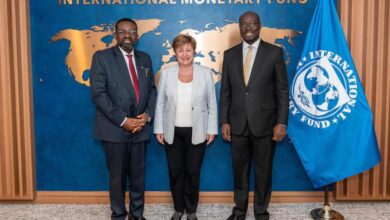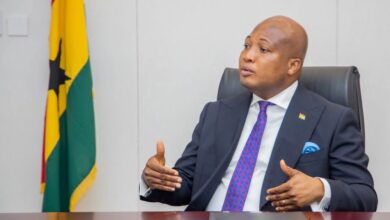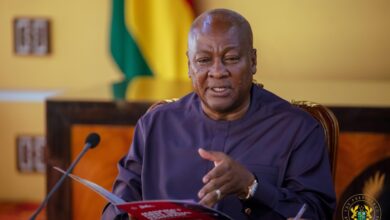Will Mahama rescue Agradaa from her 15-year jail term? What to know about presidential pardons
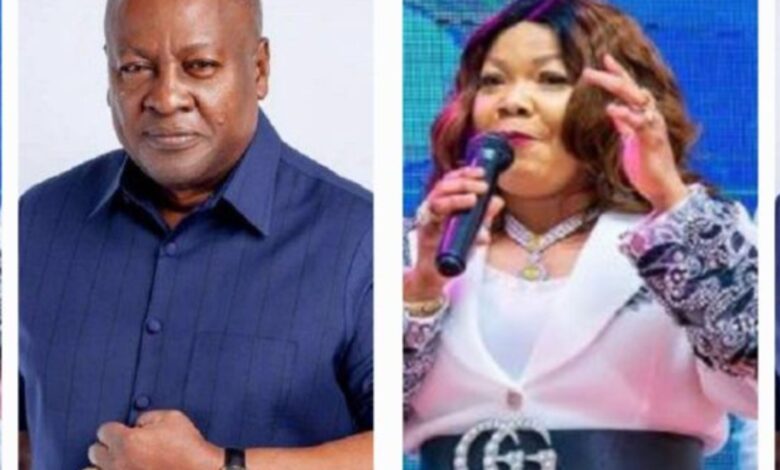
The air in Ghana crackles with a question hotter than the midday sun; can President Mahama truly wipe the slate clean for Nana Agradaa?
Evangelist Patricia Asiedua, widely known by Nana Agradaa, is currently serving a 15-year sentence with hard labour following her conviction for defrauding by false pretences and charlatanic advertisement. Her high-profile case has not only ignited fierce public debate but also raised a profound constitutional question: does President John Dramani Mahama have the legal authority to pardon her?
Agradaa, a former traditional priestess turned evangelist, was convicted after a 2022 televised broadcast in which she claimed to possess spiritual powers to “double” money. The court found that her promises of supernatural financial gain led many victims to part with large sums of money. The promotional broadcast invited members of the public to her church, Heaven Way Champion Ministries, where she assured them that their money would be miraculously multiplied. However, no such returns were delivered.
Understanding Ghana’s Presidential pardon
Thomas Partey can continue playing despite being charged with five counts of rape and one count of sexual assault. And this is why…
READ MORE: ‘Be strong, Noko love’ – Angel Asiamah sends message to his jailed wife, Agradaa
This is not a mere speculative question but rather a deep dive into the machinery of Ghana’s presidential pardon system, an immense, yet carefully regulated, constitutional power.
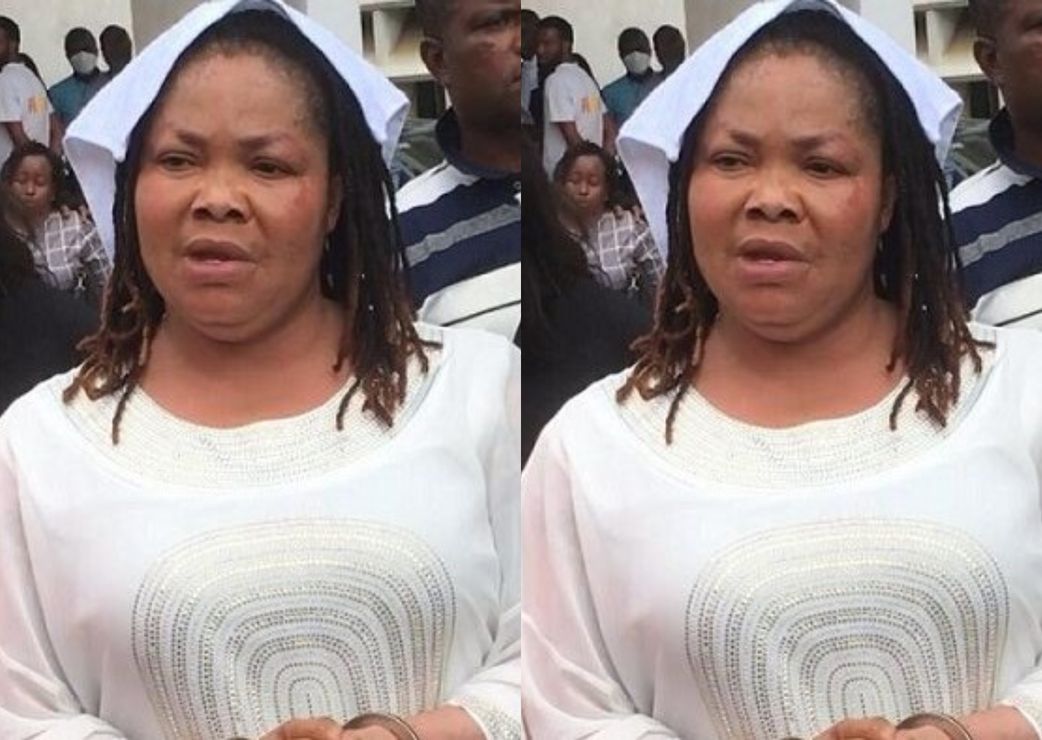
Under Article 72 of Ghana’s 1992 Constitution, the President is granted the prerogative of mercy. This includes the ability to grant pardons, commute sentences, remit penalties, offer respite, or substitute punishments. However, this power is not absolute. The Constitution mandates that the President must act “in consultation with the Council of State.”
READ MORE: Agradaa’s jail sentence won’t stop Empress Gifty’s defamation case – Lawyer
This council serves as a critical advisory body, ensuring that such a profound exercise of mercy is not undertaken lightly or unilaterally.
What Article 72 allows
Article 72(1) of the Constitution outlines five key forms of presidential clemency:
Free Pardon: A full and unconditional release, erasing the conviction entirely.
Commutation: A reduction in the severity of the sentence.
READ MORE: Nana Agradaa convicted of false advertising and fraud by pretence
Agradaa
Remission: A deduction in the sentence duration or severity.
Respite: A delay or temporary suspension of the punishment.
Substitution: Replacement of one form of punishment with another, often less severe.
READ MORE: Nana Agradaa jailed 15 years with hard labour for false pretence fraud
In capital punishment cases, Article 72(2) requires that the President receives a report from the trial judge(s), reinforcing the gravity and consideration involved. Article 72(3) further clarifies that this power applies equally to convictions from military tribunals and civilian courts.
Who Qualifies for a Pardon?
In principle, any convicted individual in Ghana may apply for clemency. However, successful applications often share some common traits:
The elderly or terminally ill, whose condition may not warrant continued incarceration.
Evangelist Patricia Oduro Koranteng aka Nana Agradaa
READ MORE: More trouble for Agradaa as court summons her over pastor’s leaked video
Model inmates, who have demonstrated good behaviour and rehabilitation.
First-time offenders or those convicted of non-violent crimes.
Individuals with strong community support, such as backing from religious, family, or civil society figures.
The process is typically initiated by the convict, their legal team, or advocates via the Ghana Prisons Service or the Ministry of the Interior.
READ MORE: Agradaa’s jail sentence won’t stop Empress Gifty’s defamation case – Lawyer
Before a presidential pardon can proceed, the Council of State must be formally consulted. This body evaluates applications based on multiple considerations:
Severity of the offence, time already served and behaviour while incarcerated
READ MORE: ‘It’ll take years to forget me’– Kuami Eugene dismisses career downfall claims
Although the President is not legally bound to accept the Council’s recommendations, he is constitutionally required to consult it, making this body a non-negotiable part of the process.
Could Mahama pardon Agradaa?
As of July 2025, President John Dramani Mahama retains full constitutional authority to pardon any prisoner, including Nana Agradaa. However, such a decision would not be unilateral; every constitutional condition, including consultation with the Council of State, must be rigorously fulfilled.
READ MORE: I inspired the movement – Samini fires back at Stonebwoy’s Afro-Dancehall claims
A few individuals have publicly advocated for presidential clemency in Agradaa’s case. Retired Ghanaian boxer Braimah Kamoko, popularly known as Bukom Banku, has made a heartfelt appeal to President Mahama to intervene.
While acknowledging the seriousness of Agradaa’s offences, Bukom Banku expressed deep sorrow over the length of the sentence and called for compassion.
He said:
I am deeply saddened by Agradaa’s situation. John Mahama, please, if she has done something wrong, find it in your heart to forgive her. Fifteen years in jail is too painful for me to bear,
READ MORE: ‘It’s normal; the church will continue’ – Agradaa’s husband speaks after wife’s 15-year jail term
However, he did not excuse her conduct. He openly criticised her for repeatedly engaging in criminal activity and publicly flaunting her misdeeds, suggesting that her past actions had made it difficult for many to sympathise with her.
Famed Media General journalist Roland Walker also joined the few to beg President Mahama regarding the jail sentence handed to Evangelist Mama Pat.
Roland Walker, who took a sympathetic approach to the unfortunate turn of events, appealed to President John Mahama to intervene in the matter. In the post, he appealed to John Mahama to grant Nana Agradaa a Presidential pardon.
He wrote:
Pres JDM, we dey beg, pardon Agradaa give we
READ MORE: ‘I sleep alone in a 10-bedroom mansion’ – Don Little cries out for a life partner
A presidential pardon, especially for a figure as polarising as Agradaa, would be politically explosive. Her conviction for duping members of the public under the guise of religious and spiritual leadership has left a sour imprint on the national psyche.
A pardon might be seen by many as undermining the rule of law and could erode public trust in the justice system. Presidents must therefore tread carefully, balancing legal authority with public expectation and institutional integrity.
The presidential power of pardon is designed to temper justice with mercy. But it comes with strict procedural requirements, legal oversight, and public accountability.
READ MORE: Agradaa’s lawyers to appeal 15-year jail term, describe it as excessive and public-driven
For now, all eyes are on President Mahama. Though he holds the constitutional key to Agradaa’s potential release, the decision, should it ever be made, must survive constitutional scrutiny, withstand political pressure, and align with national interest.
In Ghana’s vibrant democratic landscape, how and when a pardon is granted may matter just as much as why.




